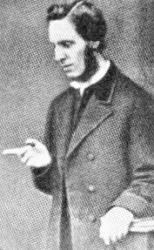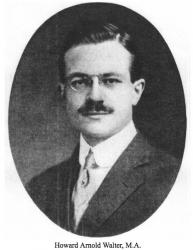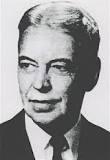Planning worship?
Check out our sister site, ZeteoSearch.org,
for 20+ additional resources related to your search.
- |
User Links
Person Results
‹ Return to hymnal





Export as CSV
Samuel O'Malley Cluff

1837 - 1910 Person Name: Samuel O. Clouph Hymnal Number: d88 Author of "I'm praying for you" in Devotional Hymns Rv Samuel O'Malley Gore Cluff (Clough) United Kingdom 1837-1910. Born in Dublin, Ireland, he attended Trinity College and became a minister in the (Anglican) Church of Ireland. He pastored at various locations in Ireland. In 1884 he became leader of the Plymouth Brethren. He married Anne Blake Edge. They had four children. He wrote hymn poems and about 1000 songs. He composed many melodies and oratories. He died in Abbeyleix, Ireland. While holding crusades in Scotland with D. L. Moody, Ira Sankey came across Cluff's poem about prayer and composed the music for it, used in subsequent crusades.
John Perry
Samuel O'Malley Cluff
J. Grigg
1720 - 1768 Person Name: Joseph Grigg Hymnal Number: d113 Author of "Jesus, and shall it ever be" in Devotional Hymns Grigg, Joseph, was born in 1728, according to the D. Sedgwick’s Manuscript," but this date seems to be some six or eight years too late. He was the son of poor parents and was brought up to mechanical pursuits. In 1743 he forsook his trade and became assistant minister to the Rev. Thomas Bures, of the Presbyterian Church, Silver Street, London. On the death of Mr. Bures in 1747, he retired from the ministry, and, marrying a lady of property, look up his residence at St. Albans. He died at Walthamstow, Essex, Oct. 29, 1768. As a hymnwriter Grigg is chiefly known by two of his hymns, "Behold a stranger at the door"; and "Jesus, and can it ever be?" His hymnwriting began, it is said, at ten years of age. His published works of various kinds number over 40. Those in which his hymns are found are:—
(1) Miscellanies on Moral and Religious Subjects, &c, London, Elizabeth Harrison, 1756. (2) The Voice of Danger, the Voice of God. A Sermon Preached at St. Albans, and at Box-Lane, Chiefly with a View to the apprehended Invasion. By J. Grigg. London, J. Buckland, 1756. To this is appended his hymn, "Shake, Britain, like an aspen shake." (3) Four Hymns on Divine Subjects wherein the Patience and Love of Our Divine Saviour is displayed, London, 1765. (4) Hymns by the late Rev. Joseph Grigg, Stourbridge, 1806. (5) During 1765 and 1766 he also contributed 12 hymns to The Christians Magazine.
In 1861 D. Sedgwick collected his hymns and poems, and published them with a memoir as:
Hymns on Divine Subjects, * * * * London, 1861. This volume contains 40 "Hymns," and 17 "Serious Poems." In the “S. MSS." Sedgwick notes that in 1861 he omitted three hymns by Grigg, which were then unknown to him, viz.:—l) On "The National Fast," appended to a sermon preached at Northampton, Feb. 13, 1761, by W. Warburton, and published in London, 1761. (2) "A Harvest Hymn by the late Rev. Joseph Grigg," in 6 stanzas, in the Evangelical Magazine, July, 1822; and (3) On the Parable of Dives and Lazarus, dated "Feb. 15, 1767."
-- John Julian, Dictionary of Hymnology (1907)
J. Grigg
E. T. Cassel
1849 - 1930 Person Name: E. Taylor Cassel Hymnal Number: d60 Author of "Loyalty to Christ" in Devotional Hymns
E. T. Cassel
Edward S. Ufford
1851 - 1929 Hymnal Number: d262 Author of "Throw out the life line across the dark wave" in Devotional Hymns
Edward S. Ufford
William Cullen Bryant

1794 - 1878 Hymnal Number: d145 Author of "Lord, who ordainest for mankind" in Devotional Hymns Bryant, William Cullen. First in order of time of the great American poets, Bryant was born at Cummington, Mass., Nov. 3, 1794, and was educated at Williams College. In 1815 he'was called to the Bar, and practised for a time at Great Barrington. In 1825 he retired from the Bar, settled at New York, and devoted himself to literary pursuits, founding the New York Review, and editing for a short time the New York Evening Post. He died June 12, 1878. His poetical and other works are well known. His hymns were written at intervals during his long life. They were collected and privately printed in 1869, and number over 20. Those in common use are:—
1. Almighty, listen while we raise. Praise. This is given as "Almighty hear us,” &c, in the Unitarian Hymn and Tune Book, Boston, 1868. It was introduced into Great Britain through Beard's Collection, 1857.
2. Deem not that they are blest alone. Mourning. In this form it is in Beard's Collection, 1837. It is best known as "0 deem not they are," &c, and in this form it is No. 964 in Songs for the Sanctuary, N. Y., 1865-72, No. 452, in Dr. Martineau's Hymns of Prayer and Praise, Lond., 1873, &c.
3. Father, to Thy kind love we owe. God's Lovingkindness. This is given in several modern collections, including the Unitarian Hymn and Tune Book, Boston, 1868, Martineau, 1873, &c.
4. 0 God, whose dread and dazzling brow. Compassion desired. Is No. 57 in the Boston Hymn and Tune Book, 1868, as above.
5. When he who from the scourge of wrong. Hope of the Resurrection. This is seldom found in modern hymnals. Text in Lyra Sacra Americana, 1868.
The above hymns (1-5) appeared in Dr. H. D. Sewall's (Unitarian) Psalms & Hymns for Social and Private Worship, 1820, and were written at the instance of a Miss Sedgwick. Following as near as possible the chronological order of the hymns we have next:—
6. O Thou Whose own vast temple stands. Opening of a Place of Worship. Written in 1835 for the Dedication of a Chapel in Prince Street, N. Y. This is the most widely known of this author's hymns. It was introduced into Great Britain as early as 1837, when it was included in Beard's Collection, No. 405. It is in 4 stanzas of 4 lines. Orig. text in Songs for the Sanctuary, N. Y., 1865, No. 1017, and Martineau, 1873, No. 727. Another form of the hymn is "Thou, Whose unmeasured temple stands," This is No. 569 in the American Presb. Psalms and Hymns, Richmond, 1867, Horder's Congregational Hymns, Lond. 1884, No. 747, and others.
7. All that in this wide world we see. Omnipresence. This is dated 1836. In his Collection in 1837, No. 17, Beard gives it as an original contributed thereto, thus fixing its first publication.
8. Thou unrelenting past. The Past. Dates from 1836. Also in Martineau, 1873, No. 508.
9. Not in the solitude. God in the City. Dates from 1836, and is No. 26 in Martineau, 1873.
10. Whither, midst falling dew. Divine Guidance. This, in common with Nos. 8 and 9, is more a poem than hymn. It is addressed "To a Waterfowl," and dates from 1836. In Martineau, 1873.
11. Dear ties of mutual succour bind. Charity Sermons. No. 905 in the Amer. Methodist Episcopal Hymnal, 1878. It dates from about 1836.
12. 0 Thou whose love can ne'er forget. Ordination. Given (but not as an original contributed thereto) in Beard's Collection (Eng.), 1837.
13. Mighty One, before Whose face. Ordination. This is dated 1840 (but is probably earlier), and is given in several collections, including Mr. Beecher's Plymouth Collection, 1855, and others.
14. Look from Thy sphere of endless day. Home Missions. This hymn has also attained to considerable use both in Great Britain and America. It dates from 1840. It is in the Song. for the Sanctuary, N. Y., 1865, Horder's Congregational Hymns, 1884, &c.
15. Lord, who ordainest for mankind. Thanks for a Mother's love. Written at Dr. Osgood's suggestion, and printed in his Christian Worship, 1862. It is repeated in Martineau, 1873.
16. All praise to Him of Nazareth. Holy Communion. Dr. Hatfield in his Church Hymn Bk., 1872, No. 736, gives this in 3 stanzas of 4 lines. In the Songs for the Sanctuary it is in its full form of 5 stanzas. It dates from 1864.
17. As shadows cast by cloud and sun. Epiphany. In the Methodist Episcopal Hymnal, N. Y., 1878. It was contributed to that Hymnal, 1877, but was composed for the Semi-Centennial Celebration of the Church of the Messiah, Boston, March 19, 1875.
18. When doomed to death the Apostle lay. On behalf of Drunkards. Also in the Methodist Episcopal Hymnal, 1878.
In addition to the above the following hymns by Bryant are in limited use:—
19. All things that are on earth. Love of God. In Beard's Collection, 1837.
20. Close softly, fondly, while ye weep. Death. In Mr. Beecher's Plymouth Coll., 1855.
21. How shall I know thee in the sphere which keeps? The Future Life. In the Supplement to the Boston Hymns for the Church of Christ, 1853.
22. Standing forth in life's rough way. On behalf of Children. In Dr. Alton's Children's Worship, 1878; Horder's Congregational Hymns, 1884, and others.
23. When this song of praise shall cease. Death anticipated. In his Hymns, 1869, and W. R. Stevenson's School Hymnal, 1880, No 313.
24. When the blind suppliant in the way. Opening the eyes of the blind. In the Methodist Episcopal Hymnal, 1878, N. Y., No. 201. It dates from 1874.
25. Wild was the day, the wintry sea. The Pilgrim Fathers. In Hymns of the Spirit, by Longfellow and Johnson. Boston, 1864.
In 1869, Hymns by W. C. Bryant, 12mo, were privately printed. In this work the texts of many of the older hymns are altered. The dates of his hymns are difficult to determine, and many of those given above are approximate only. Bryant's genius was cool, meditative, and not distinguished by lyric fire. His hymns are correct and solid, but none reach the highest rank. [Rev. F. M. Bird, M.A.]
-- John Julian, Dictionary of Hymnology (1907)
William Cullen Bryant
Marianne Farningham

1834 - 1909 Hymnal Number: d126 Author of "Just as I am, thine own to be" in Devotional Hymns Pseudonym, real name Marianne Hearn.
===========================================
Hearn, Marianne, known to the public only by her nom deplume of Marianne Farningham, was born at Farningham, in Kent, Dec. 17, 1834. She resided for short periods at Bristol and Gravesend, and since 1865 at Northampton. Miss Farningham is a member of the Baptist denomination. Her literary work has been done chiefly in connection with the Christian World newspaper, on the staff of which she has been from its first publication. She is also editor of the Sunday School Times. Most of her contributions to the Christian World have been republished in book form, and include:—
(1) Lays and Lyrics of the Blessed Life, 1861. (2) Poems, 1865. (3) Morning and Evening Hymns for the Week, 1870. (4) Songs of Sunshine, 1878.
From these works the following hymns have passed into common use:—
1. Father Who givest us now the New Year. Old and New Year. From her Songs of Sunshine, 1878.
2. Hail the children's festal day. Sunday School Anniversaries. Appeared in the Sunday School Times, 1875.
3. Let the children come, Christ said. Christ's invitation of children. In G. Barrett's Book of Praise for Children, 1881. It was written in 1877.
4. When mysterious whispers are floating about. Death anticipated. Appeared in the Christian World, in the Autumn of 1864; and again in her work, Poems, 1865. In I. D. Sankey's Sacred Songs & Solos, it is entitled "Waiting and Watching for me" (the refrain of each stanza), and is altered to "When my final farewell lo the world I have said." This is the most popular of Miss Hearn's hymns. [Rev. W. R. Stevenson, M.A.]
-- John Julian, Dictionary of Hymnology
===============
Hearn, Marianne [Farningham], pp. 502, ii.; 1587, ii. Miss Hearn published in 1903 Harvest Gleanings and Gathered Fragments. Other hymns by her in common use include:—
1. Anywhere with Jesus. [Follow Christ] In her Lays and Lyrics, 1860, p. 163.
2. Christ, we children sing to Thee. [Praise to Jesus.] Written for C. Bonners Garland of New Sunday School Music, 1881 (1886, No. 2).
3. He smiled as He stretched out Hit hand in glad welcome. [God's Call.] In the Baptist Junior Hymnal, 1906, No. 175.
4. Just as I am, Thine own to be. [Follow Christ.] Contributed to the Voice of Praise, 1887, No. 348. Suggested by Miss Elliott's better-known hymn.
5. Little feet are passing. [The Way to Heaven.] In her Poems, 1866, p. 271.
6. Sing, for the world rejoiceth. [Spring.] Contributed to the Voice of Praise, 1887, No. 470.
We may note that "Father! abide with us," p. 365, ii., is by her, from Lays and Lyrics, 1860, p. 143. [Rev. James Mearns, M.A.]
--John Julian, Dictionary of Hymnology (1907)
Marianne Farningham
H. A. Walter

1883 - 1918 Person Name: Howard Arnold Walter Hymnal Number: d101 Author of "I would be true, for there are those" in Devotional Hymns
H. A. Walter
George Heath
1745 - 1822 Hymnal Number: d162 Author of "My soul be on thy [your] guard" in Devotional Hymns Rv George Heath DD United Kingdom 1745-1822. Born at Exeter, Devon, England, he was educated at the Dissenting Academy and King’s College, Cambridge. He married Mary Ann Kean, and they had 4 children: Louisa, John, Charles, and Benjamin (also a minister). He served as pastor of the Honiton, Devonshire, Presbyterian Church, but proved unworthy and was dismissed for cause. He later became a Unitarian minister. In 1781 he published “Hymns & poetic essays sacred to the worship of the Deity”. He also authored a “History of Bristol”. He became Headmaster of Eton College (1792-1802). He joined the Anglican Church and became Canon of Windsor (1800-1822), Rector of Monks Risborough, Vicar of Sturminster Marshall, Dorset, Vicar of Piddletown, Vicar of East Beachsworth (1805-1814), and Fellow of the Royal Society (1795-1822). He was appointed to the 4th stall in St. George’s Chapel in 1800, Windsor Castle, and died at his residence in the Cloisters, Windsor Castle.
John Perry
=======================
Heath, George, became pastor of a Presbyterian Church at Honiton, Devon, in 1770, and died in 1822. He published a History of Bristol, 1797. Also Hymns and Poetic Essays Sacred to the Public and Private Worship of the Deity, &c, Bristol, 1781, from which "My soul, be on thy guard" (Steadfastness), is taken.
--John Julian, Dictionary of Hymnology, Appendix, Part II (1907)
George Heath
Margaret Mackay
1802 - 1887 Hymnal Number: d17 Author of "Asleep in Jesus, blessed sleep" in Devotional Hymns Mackay, Margaret, was born in 1802, and the only daughter of Captain Robert Mackay, of Hedgefield, Inverness. She was married in 1820 to Major William Mackay, of the 68th Light Infantry (afterwards Lt. Colonel) a distinguished officer who died in 1845. Mrs. Mackay died at Cheltenham, Jan. 5, 1887. In addition to various prose works Mrs. Mackay published Thoughts Redeemed; or Lays of Leisure Hours, 1854, which contained 72 original hymns and poems. [Rev. James Mearns, M.A.]
-- John Julian, Dictionary of Hymnology (1907)
Margaret Mackay
Walter Russell Bowie

1882 - 1969 Hymnal Number: d177 Author of "O holy city seen of John" in Devotional Hymns Walter Russell Bowie (October 8, 1882–April 23, 1969), was a priest, author, editor, educator, hymn writer, and lecturer in the Episcopal Church (United States).
See also in:
Wikipedia
Walter Russell Bowie


 My Starred Hymns
My Starred Hymns


